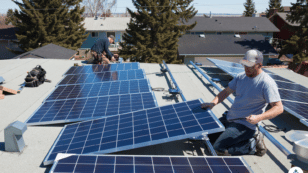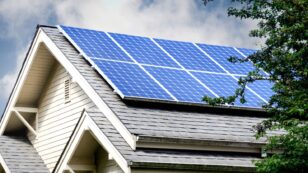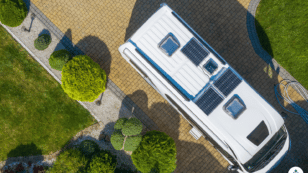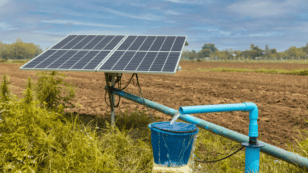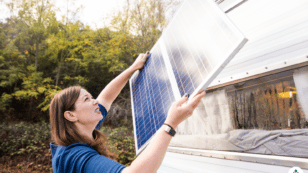
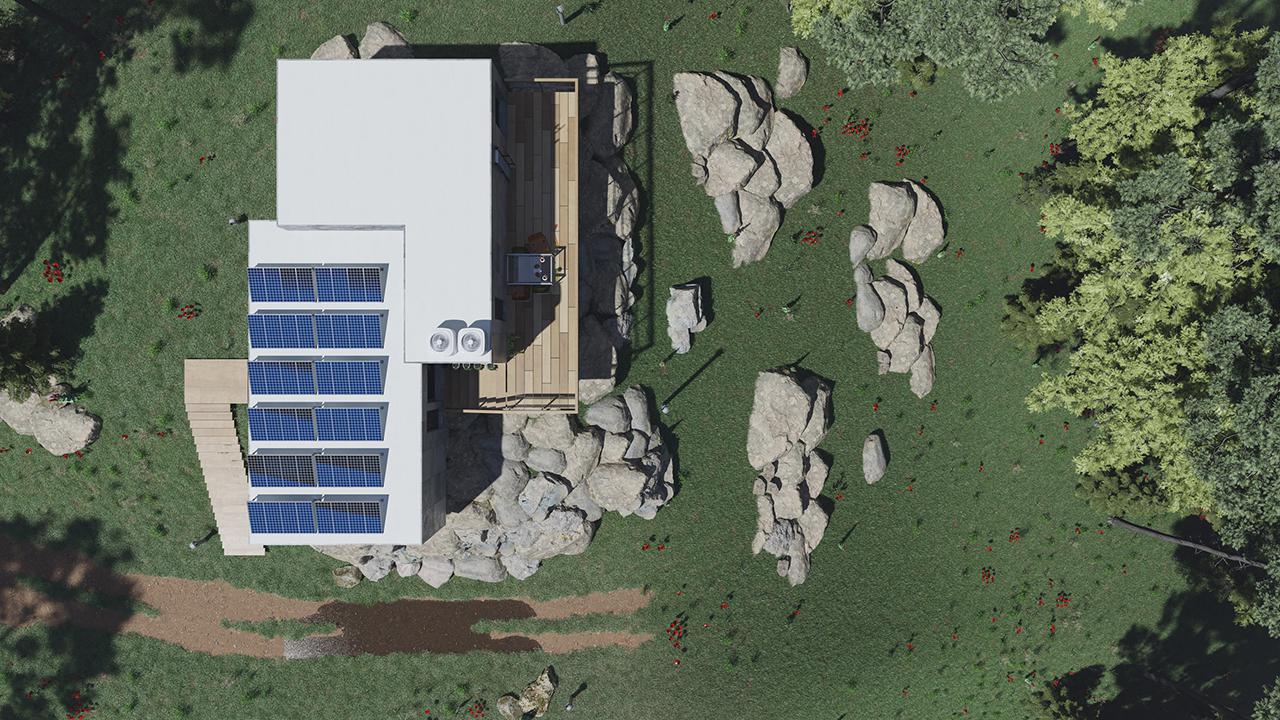
Buyer’s Guide: Best Solar-Powered AC Units of 2024
Each product and or company featured here has been independently selected by the writer. You can learn more about our review methodology here. If you make a purchase using the links included, we may earn commission.
If you’re looking to keep cool this summer, you may be looking for a new air conditioning unit. Whether you’re looking for a standalone AC unit or a central heating, ventilation, and air conditioning (HVAC) system, choosing one of the best solar-powered AC units can help you reduce your carbon footprint and save money on utility bills.
In this article, we’ll go over the basics of
solar energy AC units, including installation tips, the benefits of solar HVAC, information on the best solar-powered air conditioners on the market and frequently asked questions.
Why Switch to a Solar AC Unit or Solar HVAC Unit?
Air conditioners and HVAC systems remove heat from the air inside your home through cooling and recirculation, allowing hot air and moisture to be released outside. Solar AC units work similarly — without driving up your electricity bills in the summer.
According to the U.S. Energy Information Administration, AC costs represent 12% of home energy costs in the U.S., ranging from 5% in very cold climates to 27% in hot-humid climates.
A residential cooling system can be used to lower the temperature of one or a few rooms in one’s house, or the whole house. Central air conditioning is used to cool the whole house, while a standalone AC unit is typically used for smaller spaces. According to the EIA, in 2015, about
60% of U.S. households relied on central air conditioning, while 23% used an AC unit; about 5% of households relied on both central HVAC and a supplementary AC unit.
Conventional air conditioner systems cost over $29 billion annually, according to the U.S. Department of Energy. What’s more, the DOE says AC units and systems release about 117 million metric tons of carbon dioxide into the atmosphere each year. This means that, despite their convenience, conventional AC units cause a good amount of air pollution, especially in hotter regions.
The good news is that you can cut both home energy costs and your carbon footprint by choosing a solar power system.
A solar AC unit is a good option for homeowners who don’t need a full
solar panel installation, such as people with small roofs, who live in condos or who want solar-powered RV cooling. However, it may be more cost-effective for homeowners to install a whole-home solar AC system to get the best energy savings and a more substantial return on investment.
Interested in getting a full solar panel system installed for your home? Fill out the free, no-obligation form below to get a quote from a trusted solar installer in your area.

Types of Solar-Powered AC Units
If you’re ready to make the switch to clean energy, you’re probably wondering how to narrow down the best solar-powered AC unit for your home. Before you look at specific products, it helps to understand the different types of solar technology on the market.
The three main types of solar-powered air conditioners are direct current (DC) solar air conditioners, alternating current (AC) solar air conditioners, and hybrid solar air conditioners.
Direct and alternating current refers to the way energy flows: DC only flows in one direction, while AC changes direction often. These currents are often used in different applications. Home energy grids use alternating current, while batteries use direct current.
Here’s how these types of currents work in solar-powered AC units:
-
- DC solar air conditioners: Direct current solar air conditioners use the DC power that is produced by photovoltaic panels. Because these systems don’t require an inverter to change the power to alternating current, they’re optimal for off-grid applications.
-
- AC solar air conditioners: Alternating current solar air conditioners are designed to work with your home’s existing power grid. This means that the DC current collected from the solar panels is converted into AC power for use with the solar air conditioner, which can be used on the electrical grid.
-
- Hybrid solar air conditioners: Hybrid solar air conditioners use a combination of electricity from the grid and solar power to reduce the overall cooling costs of your space or whole home. More specifically, an AC/DC hybrid system uses grid electricity to run the unit’s fans, but solar energy to run the compressor.
Pros and Cons: Find the Best Solar-Powered AC Unit for Your House
Now that you know how these solar panels work to cool your home, let’s take a look at the pros and cons of each option:
| Type of Solar
AC Unit |
Pros | Cons |
| DC solar air conditioner | – Can be used off-grid
– Do not require an inverter if used as a standalone system |
– Cannot be connected to home energy system without an inverter
– Requires a battery bank to store energy for cooling at night or in low-light settings |
| AC solar air conditioner | – Works seamlessly with existing power grid | – Always requires an inverter |
| Hybrid solar air conditioner | – Can lead to higher cost savings without installing a whole home energy system
– Does not require a solar battery, as it can be supplemented with your grid power supply |
– Can limit the number of appliances you run at one time
– Can be more expensive than other types of solar panel systems |
5 Best Solar-Powered AC Units
Currently, the following HVAC manufacturers and
top solar companies make the best solar-powered air conditioner units and systems on the market:
SolAir World
Whether you want to go entirely off-grid or invest in a smaller solar air unit, SolAir World has some of the best solar-powered AC solutions available. The company offers hybrid solar air conditioners as well as 100% off-grid systems. In addition to solar air conditioners, SolAir World also sells solar panels, solar refrigerators, ceiling fans and batteries.
GREE
GREE makes a variety of conventional air conditioning solutions, including a Solar Hybrid Hi Wall Inverter Air Conditioner. This heat pump is easy to set up and use, but you’ll need to buy solar panels separately from the AC unit, as GREE only manufactures the air conditioners. This means you can choose the
best solar panels for your budget and energy needs. And, because it’s a hybrid unit, it will pull grid power at night or on cloudy days, no battery bank required.
LEZETi Hybrid Solar AC
The LEZETi Hybrid Solar AC is manufactured by Thomas Edison Solar. Although it’s a hybrid air conditioner, it runs directly on DC power from a solar panel. This means you don’t need an inverter or charge controller, and the unit has a high efficiency because the power doesn’t have to be converted to alternating current. You also don’t need a backup battery, as the unit is hooked up to your main electricity source for low-light use.
Lennox
Lennox, a leading air conditioner and HVAC manufacturer, also offers high-quality solar-ready AC units. The air conditioner and heat pump models in the Dave Lennox Signature® Collection are all equipped for solar hook-up. These are some of the most energy-efficient models the company makes, and by pairing them with one of the
most efficient solar panels, Lennox says you can decrease your overall utility bills by up to 50%.
HotSpot Energy
HotSpot Energy sells a variety of clean energy solutions, such as solar AC units, chillers, solar pool heaters, solar batteries and solar water heaters. In terms of home heating and cooling, the company has a few hybrid models for on-grid use and DC-only models for off-grid applications. Additionally, you can purchase a hybrid inverter from HotSpot that can turn any AC unit (or other alternating current appliance) into a solar-powered unit.
Final Thoughts: Is Solar Air Conditioning Worth It?
Whether investing in one of the best solar-powered AC systems is worth it for your home depends on many factors, including your energy needs, local climate, budget and whether your home is optimized for a solar system.
Solar air conditioning is best suited for places that get very hot and humid, and therefore require a lot of AC. If you have a home that is optimal for a full solar energy system, it may be better to do a house-wide installation (you can get a free quote for your home below). However, if you don’t, a solar AC unit could still be a good option for clean energy in your home.

Solar HVAC Unit FAQs
Here are a few commonly asked questions about the best solar-powered AC systems:
Solar-powered air conditioning works a lot like conventional air conditioning — it sucks heat out of the air in your home, releasing it outside, to cool your indoor space — but runs off renewable energy. A solar-powered AC relies on sunlight to power the system. Using photovoltaic panels, also known as solar cells, solar AC systems convert the sun’s light energy into electricity that is used to power the air conditioner.
The number of solar panels you use to power your AC unit will determine its ability to cool your home. In reality, the number of solar panels you will need to use depends on your exact solar-powered air conditioner and how much power (typically measured in watts) that it uses. According to The Phoenix Sun, you will need
one to five panels for a 100-watt solar AC system. Most AC systems rely on about 1,200 watts, which would require about five panels, according to Easy Solar Guide. A central solar-powered AC would require much more – 3,000 to 5,000 watts.
In short, the number of solar panels you need at home depends on your cooling needs. A larger AC system will require more solar panels, while a smaller AC unit will require fewer panels. Make sure to assess your cooling needs to make sure your solar-powered AC system will have the proper power source.
Compared to regular air conditioning systems, solar-powered HVAC systems are a lot more costly – about $2,000 before installation fees. Adding in the installation fee, the price rises to about $5,000.
While a solar HVAC can be a large investment, the payoff in terms of utility bill savings and reduced carbon footprint can make it worth it in the long run. You can also check to see whether your locality or state offers incentives for installing solar-powered AC.
A solar battery system will ensure your solar-powered AC will still work at night, on cloudy days, or any time the sun isn’t directly hitting your panels. This is helpful because, in the event of a nighttime or low-light power outage, your solar-powered AC unit will still be able to operate off reserve battery power.
Yes, as a hybrid solar air conditioner can work both as a direct DC system (which can be used as a standalone unit for off-grid application) and as a hybrid DC unit (which pulls power from the grid when there is no sunlight).

 233k
233k  41k
41k  Subscribe
Subscribe 


